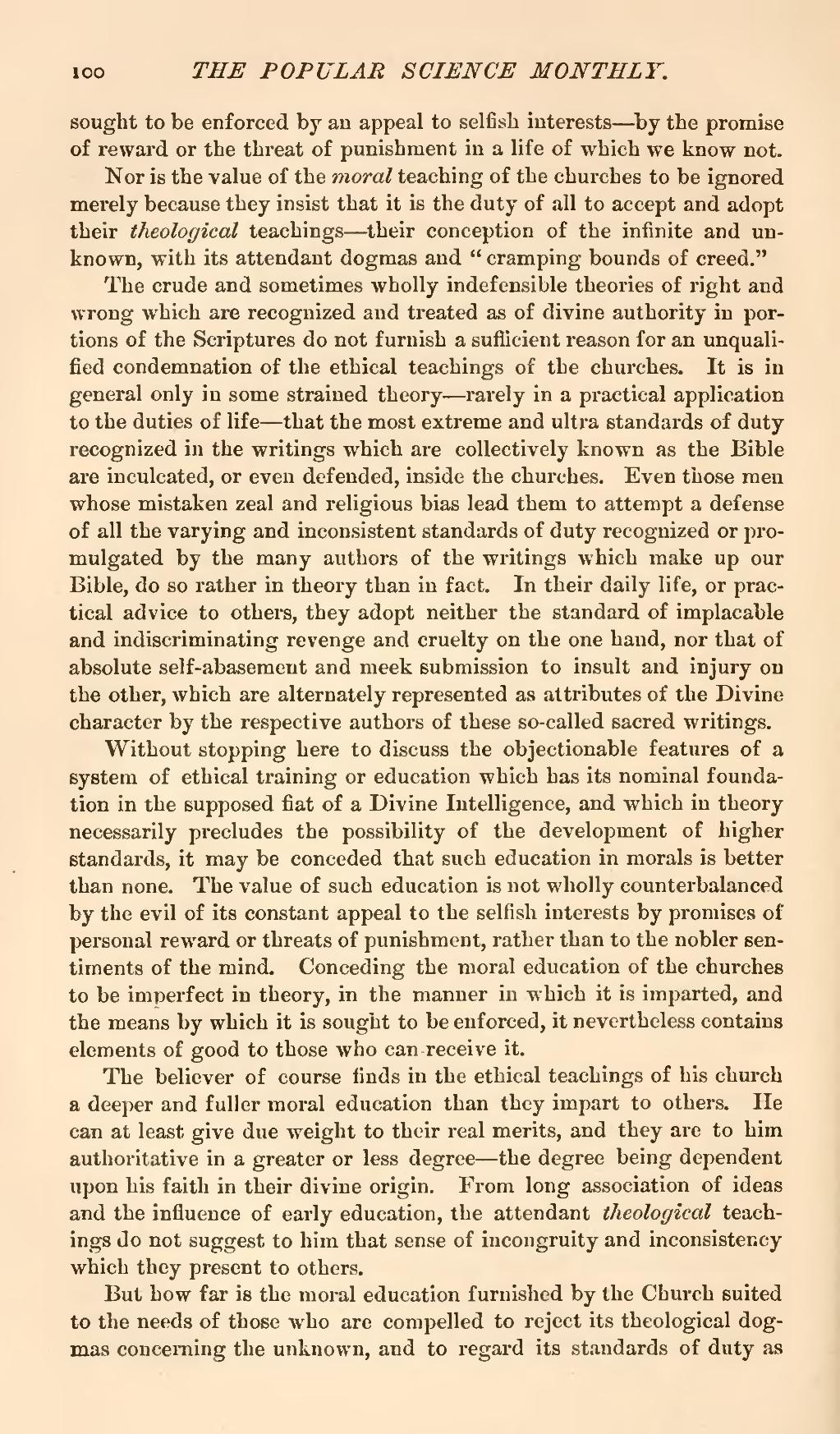sought to be enforced by an appeal to selfish interests—by the promise of reward or the threat of punishment in a life of which we know not.
Nor is the value of the moral teaching of the churches to be ignored merely because they insist that it is the duty of all to accept and adopt their theological teachings—their conception of the infinite and unknown, with its attendant dogmas and "cramping bounds of creed."
The crude and sometimes wholly indefensible theories of right and wrong which are recognized and treated as of divine authority in portions of the Scriptures do not furnish a sufficient reason for an unqualified condemnation of the ethical teachings of the churches. It is in general only in some strained theory—rarely in a practical application to the duties of life—that the most extreme and ultra standards of duty recognized in the writings which are collectively known as the Bible are inculcated, or even defended, inside the churches. Even those men whose mistaken zeal and religious bias lead them to attempt a defense of all the varying and inconsistent standards of duty recognized or promulgated by the many authors of the writings which make up our Bible, do so rather in theory than in fact. In their daily life, or practical advice to others, they adopt neither the standard of implacable and indiscriminating revenge and cruelty on the one hand, nor that of absolute self-abasement and meek submission to insult and injury on the other, which are alternately represented as attributes of the Divine character by the respective authors of these so-called sacred writings.
Without stopping here to discuss the objectionable features of a system of ethical training or education which has its nominal foundation in the supposed fiat of a Divine Intelligence, and which in theory necessarily precludes the possibility of the development of higher standards, it may be conceded that such education in morals is better than none. The value of such education is not wholly counterbalanced by the evil of its constant appeal to the selfish interests by promises of personal reward or threats of punishment, rather than to the nobler sentiments of the mind. Conceding the moral education of the churches to be imperfect in theory, in the manner in which it is imparted, and the means by which it is sought to be enforced, it nevertheless contains elements of good to those who can-receive it.
The believer of course finds in the ethical teachings of his church a deeper and fuller moral education than they impart to others. He can at least give due weight to their real merits, and they are to him authoritative in a greater or less—degree the degree being dependent upon his faith in their divine origin. From long association of ideas and the influence of early education, the attendant theological teachings do not suggest to him that sense of incongruity and inconsistency which they present to others.
But how far is the moral education furnished by the Church suited to the needs of those who are compelled to reject its theological dogmas concerning the unknown, and to regard its standards of duty as
